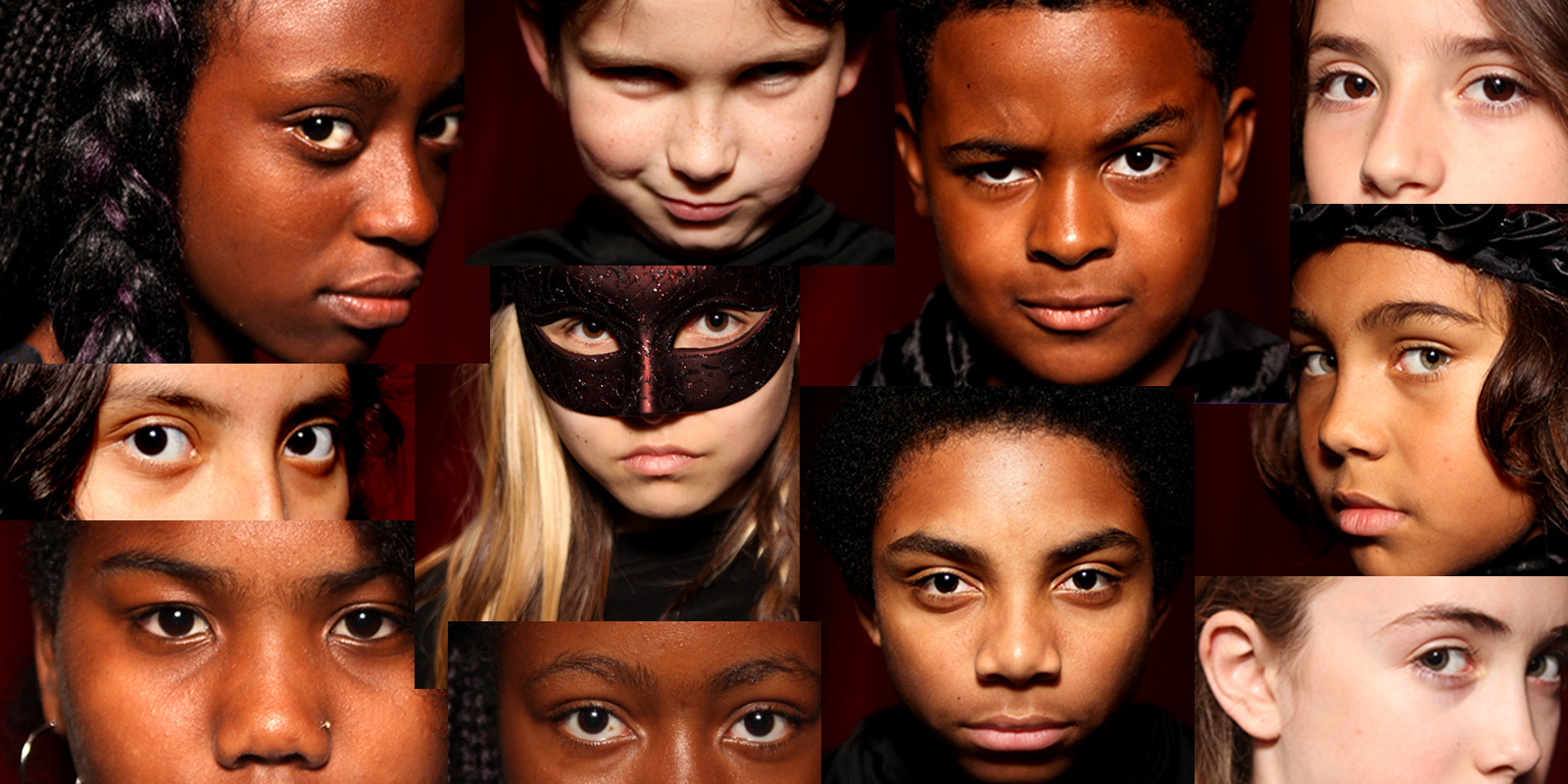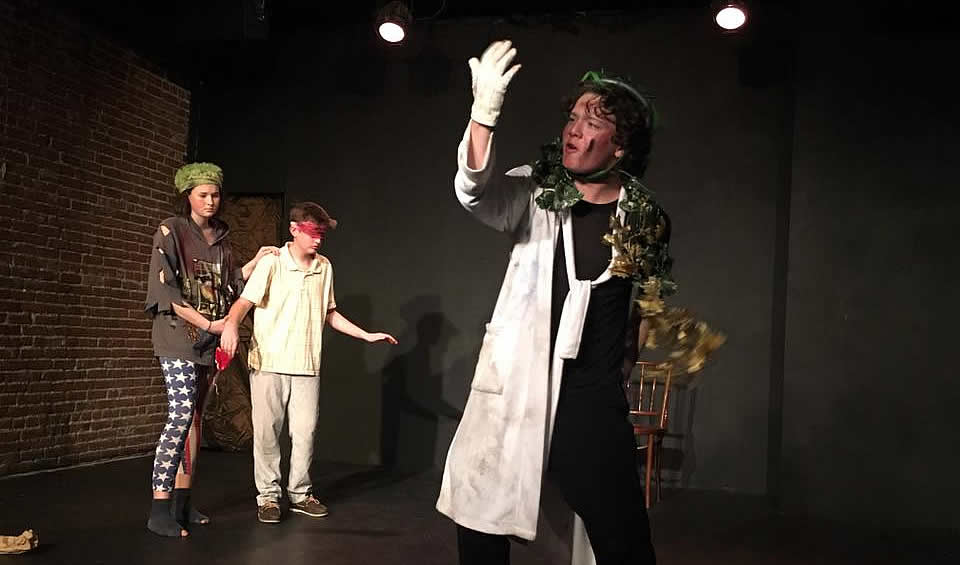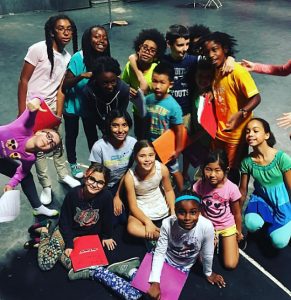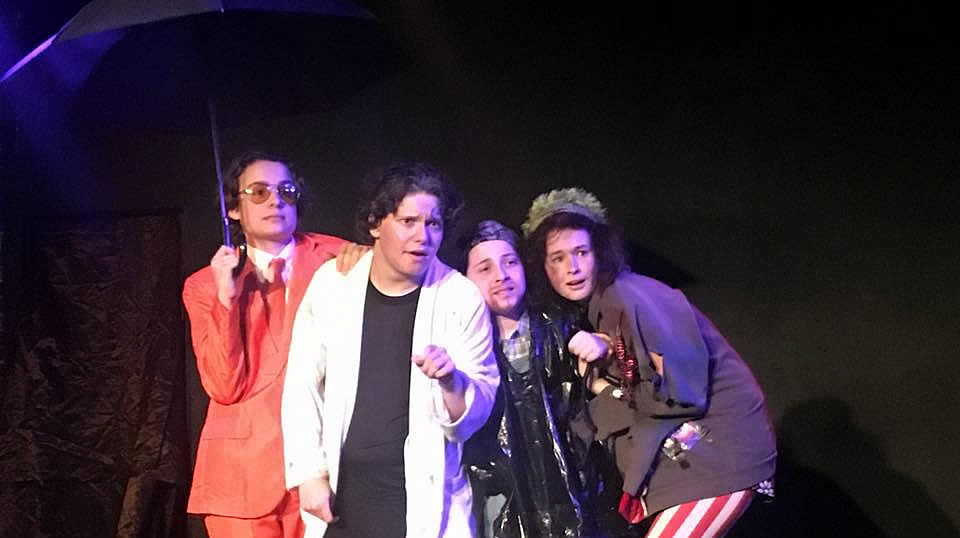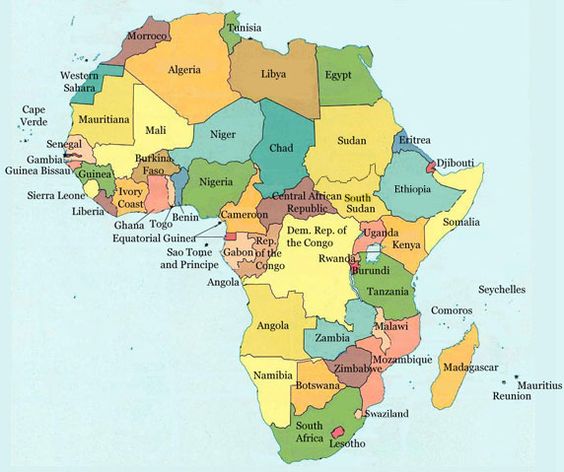Or: How to put up a Shakespeare recital with 340 kids in Rural Botswana
This may sound like “shop talk” to outsiders, but there are things that are universal. Example: if you breathe…you might want to read on.
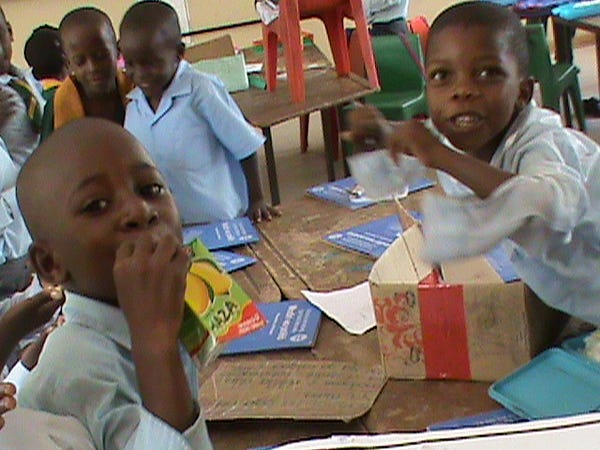
I tend to forget that how you breathe is how you live.
It’s been a few days of having “Miss Blaire” in class and now we are all working on our pieces: KK’s 5th Grade has Puck’s finals speech from A Midsummer Night’s Dream. Gertrude’s fourth grade class has 6 Iambic Pentameter Lines which they dramatically act out…First, Second and Third Graders have the Mirror Games, group theatre games, yoga…
Mr. Joel’s tweens are my concern — they’re immersed in a potential exam and getting to the next level — the neighborhing school. I sit in and watch Mr. Joel’s kids quietly mumble when sharing their superlative sentences. This room needed oxygen. Mr. Joel decides to call on me to make up a sentence. I throw back a curve ball:
“Can you all stand up? I would like to see how you breathe.”
I don’t know if he likes me now. But I don’t care because no one was breathing in there.
Eyes dart around. Whaaat?! I guide them in a group inhale and I watch where the air goes in their bodies. As I expected…they suck in their stomachs, raise their shoulders and puff out their chests! I suppose this is a a global thing. Especially with females. But it’s wrong.
I ask them to cross their arms over their chest and then breathe. It has no choice but to go into their bellies. I walk by each student as they breathe into their bellies and exhale. Definitely new for them.
With the new breath, I ask them to now…repeat the sentences they constructed. A noticable difference. Immediate improvement. Still no one was loud enough to be heard by the entire classroom. So I send them outside. One by one. Go outside and yell to us.
Twenty feet away, they call out their sentences after breathing into their bellies. Their voices suddenly boom. But that is only part of it. They are smiling — laughing — experiencing the power. This is how you do it!
I threaten Mr. Joel’s class: they will next speak Shakespeare — loud and clear — for a presentation at the end of the week. I give them Prospero’s speech from the Tempest to learn as a choral speech. I break it down, slowly and animated — what Prospero is saying and doing here- passing on his power, laying down his staff, as Shakespeare soon put down his pen after this play. This is about — goodbyes.
What happened inside this class in the course of my time here, really did fulfill my wildest dreams. That’s for the next installment.
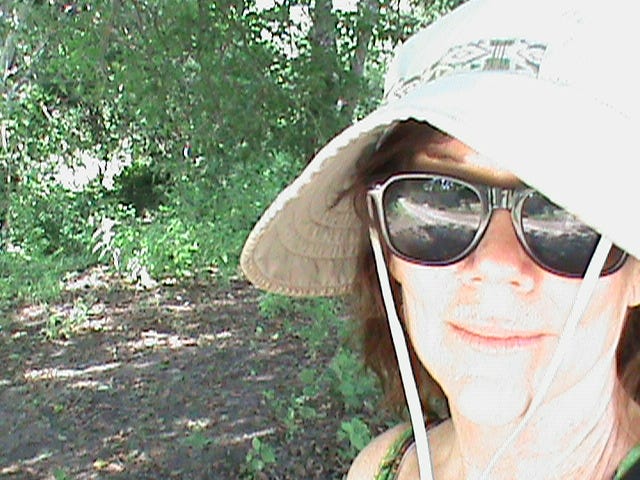
I am now in Mma Wilson’s lively 4th grade class — this group of 30 nine year olds seem down for Tongue Twisters. We divide into Call/Response teams — and as easy as tongue twisters are to our kids, I realize the value in slowing everything down and breaking it into the most singulary components possible.
R/e/d lea/th/er!
That alone was hard. It was very hard. the “d” to “l” — it wasn’t happening. We spent a good 15 minutes just on: Red Leather. I thought how speedy we are in America. How surface-level things have gotten. How busy doing…what exactly? Here we are just deconstructing a tongue twister — spending a quarter of an hour on how to say “Red Leather” …..how were we going to get to the results:
RedLeatherYellowLeatherGreenLeatherPurpleLeather…!?
But we couldn’t get past Red Leather. The Hard Rs stopped everyone in their tracks. Try saying “purple leather” as a second language. After about 40 minutes of trial and error — suddenly —they get the hang of it — once I let go of the Hard R idea — they just flow and I figured as long as they breathe into the belly — then they can say it three times in one breath. Then four. Then five. They do!

I pointed to colors in the classroom that corresponded. What a fun way to learn what the color purple was in second language — inside a tongue twister. They want another one.
I-rish Wrist-watch. (Six times in one breath) What is an Irish Wristwatch?!

Once they learn what Ireland was, and the word wristwatch in English, they laugh so hard. “Madame, Where is an Irish wristwatch? Do you have one?” Now we jump back and forth between:
Redleatheryellowleathergreenleatherpurpleleather
to
IrishWristWatch
to
YouKnowYouNeedUniqueNewYork
to
ArticulatoryAgilityIsADesirableAbility
Mma Wilson’s class become Masters at the Tongue Twister. They learn them all and demand to perform them for the show —

On weekends, I was taken to a Backpackers Camp and Lodge where there is a central gathering place (the bar) and I found myself writing there when not raising eyebrows at European and South African tourists. My biggest eyebrow arch of all came when I heard an Irish man (drinking at the bar) correcting an African bartender on his pronounciation of the word “Cider” — I almost spit out my…cider? Here is the account, as it was happening:
“I am listening to an Irishman correct a local Botswani on how to say “Cider”. He is saying, it’s “Soy-Drr! Soy-Drr.” (Really, Irishman? Is it? Soy-Drr…) The bartender, whov was raised speaking English as a second language calls it “Sy-dah” in his dialect which by the way, is quite pleasing to the ear. Open vowels…open face…soft voice…I have a pretty extreme sensitivity to sound and sound currents. I could listen to Swana in my ear 24/7 and it would lilt me to a peaceful sleep. The hard R’s of this man’s Irish dialect are akin to American’s hard Rs — times ten. Never mind my preference of Sy-dah to Soy-drr….setting that aside…WHY ARE YOU CORRECTING PRONOUNCIATION AT ALL!? And would you correct a Bronx bartender for calling it Sway-duh or a Paris bartender for calling it Tschhhdeucchh? Would you? Think about it. I want to smack ye, ye little drunken goblin! Take yr Irish wristwatch and beat it…
(All right, it was my personal diary, there’s some strong opinions.) But right there I did have a revelation. I’m doing the same thing as that Irishman! In Mma Wilson’s class with the tongue twisters, I was forcing that hard R so they could be “understood” when they “go out in the global market.” Where did that come from!?
Chances are, they will not all move to America so why would I impose my understanding of how a consonant or vowel is pronounced AT ALL?! I don’t even LIKE hard R’s. This idea got in me somewhere — and was so deeply ingrained I wasn’t even aware I was allowed to question it!

I return Monday to Mma Wilson’s class and we start the tongue twisters again. This time, I attempt to hear and speak in their English/Swana dialect — sounding something like this:
Reyd Lethah Yaylow Lethah Grrreeeen Lethah Puhpel Lethah
Much Bettah! Now I am mirroring what I am hearing from them — rather than “correcting” or altering the beauty of this dialect — Going foreward — message to Self —
Hear other English Language dialects and adjust accordingly — not make them adjust to yours. In another country, you’re the one with the “accent.”
The lesson goes further. Applying it to food, dress, customs, beliefs…. Are we not more enriched when we let a culture, a language…happen to us, versus imposing our “culture” — whatever that is — on our host country? Though I still am fuming over “Soy-drr” — I am concerned for the bigger picture. The flattening out of so many of our ancient cultures by globalization and homogenization and Instagramization and everything becoming Trader Joe’s….Stop!
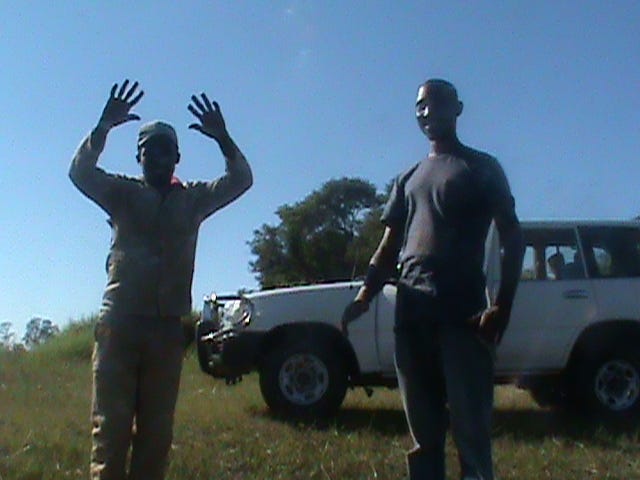
At lunch I am told the village will come out for the show. The PTA and maybe the Tribal Chief will come and I am scared now — will he think this is silly? They are academic here, the children must excel to be allowed in the next school. Now I have them doing yoga and speaking Shakespeare and saying Red-Lethah….
I have five more classes to tackle — totallying 350 kids — then I hear the scary news — Spring Break is coming: next week is a short week. I have three more school days to work with the entire school — then they will perform and take a long spring vacation.
I walk home passing cows and donkeys and goats and dogs before turning on antoher dirt road where the building sits that houses the Tribal Chief.
I needed his permission for this endeavor. It was time.
Next: Shakespeare in Africa #6. The Show Goes On



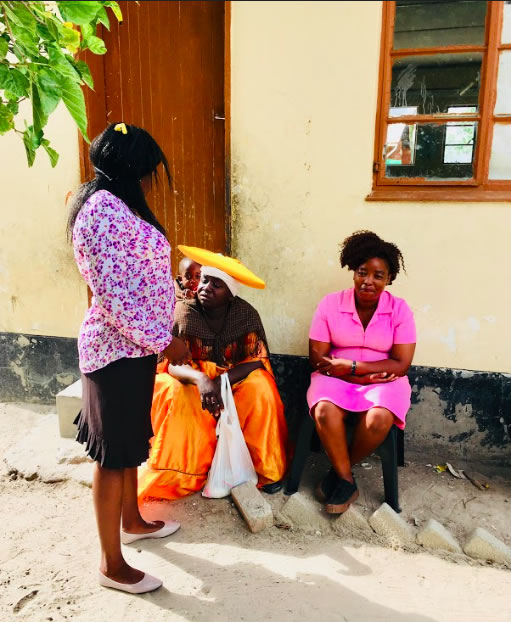



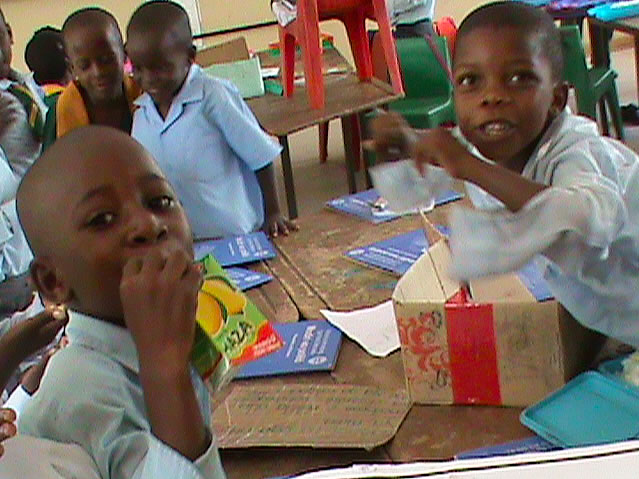


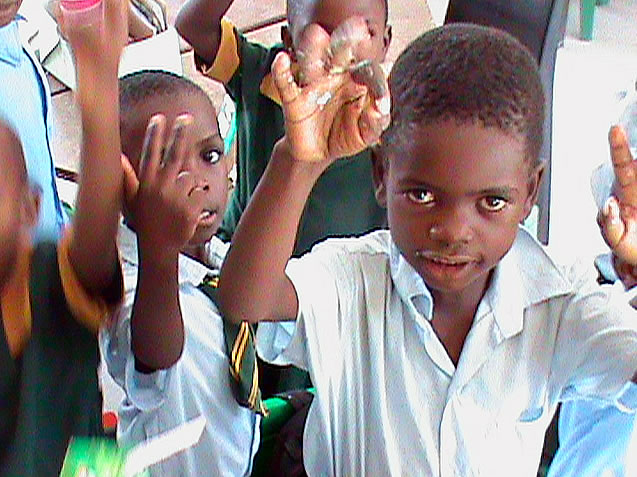

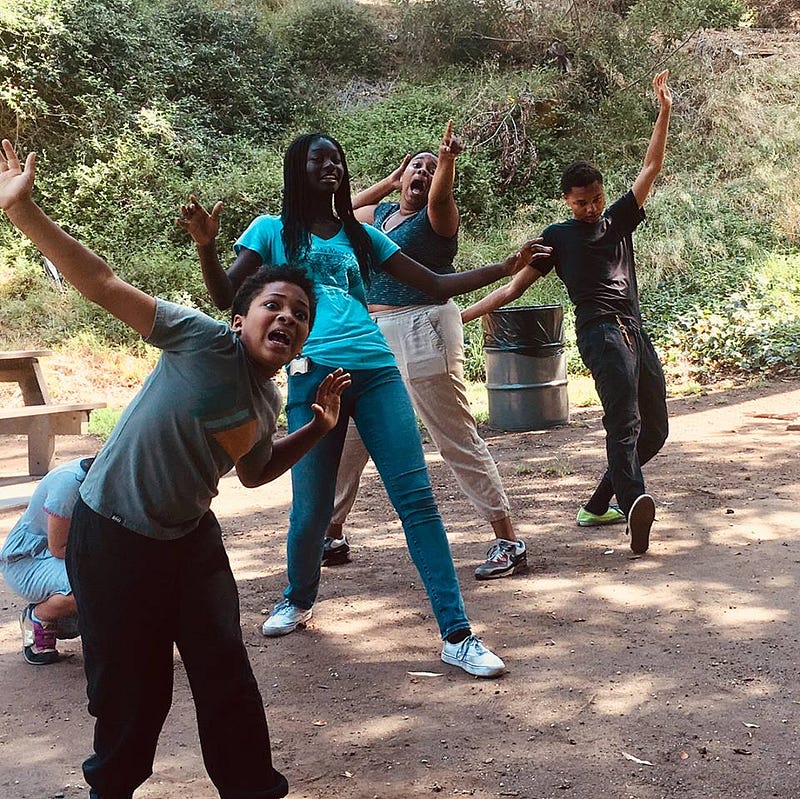
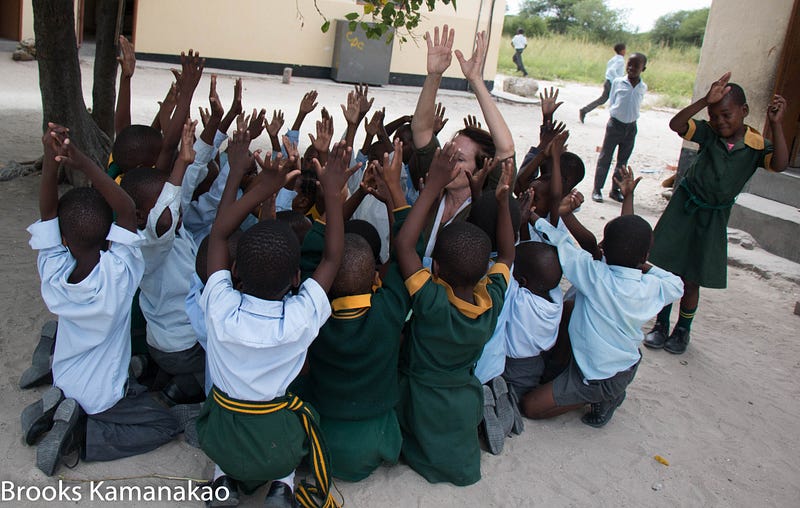



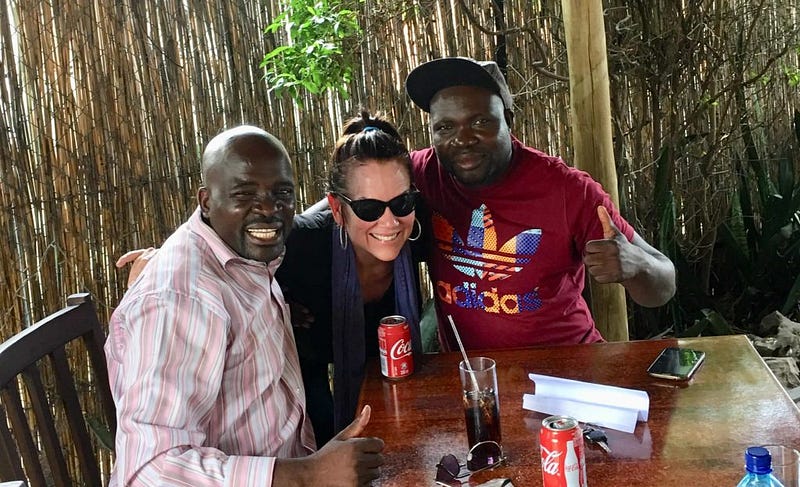



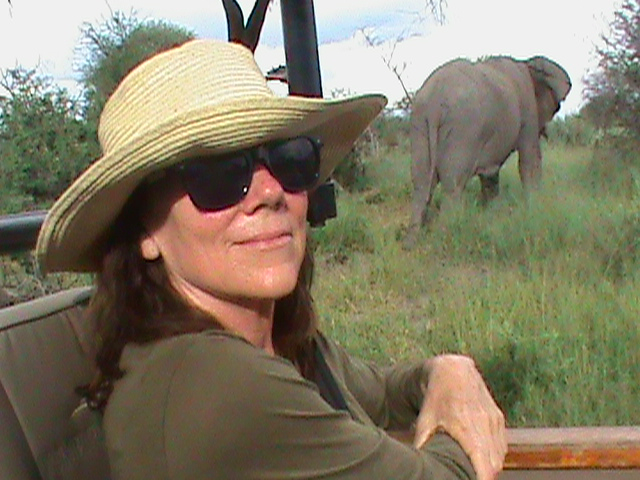
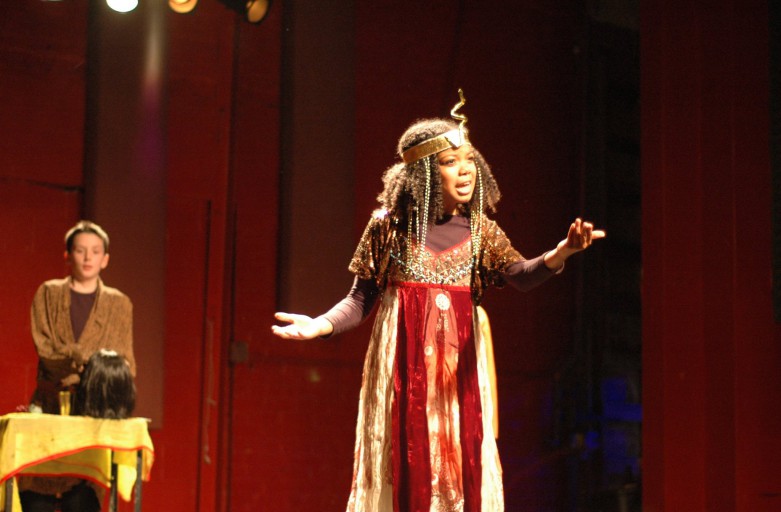



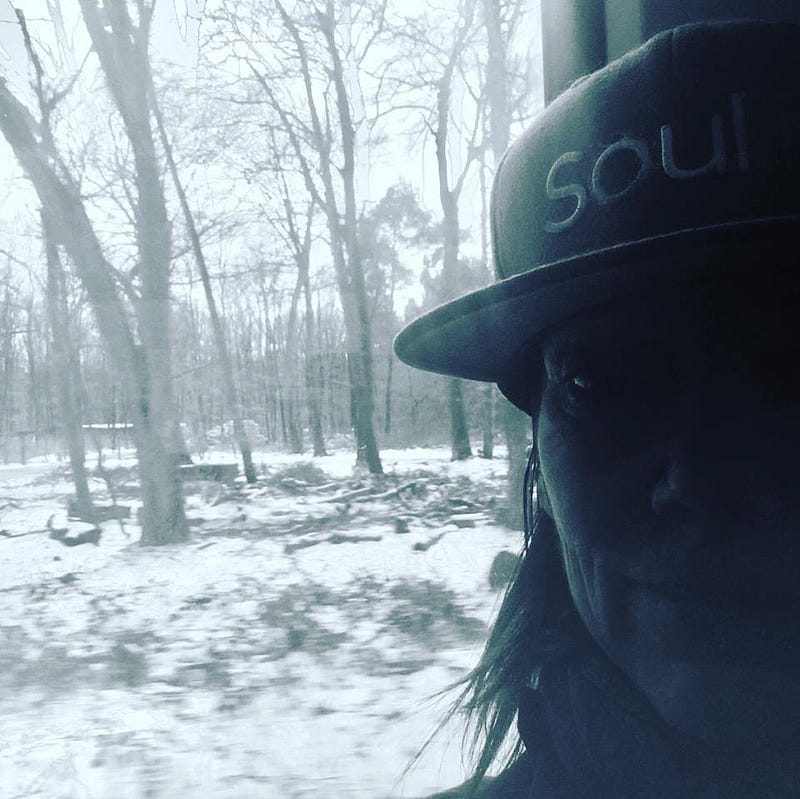


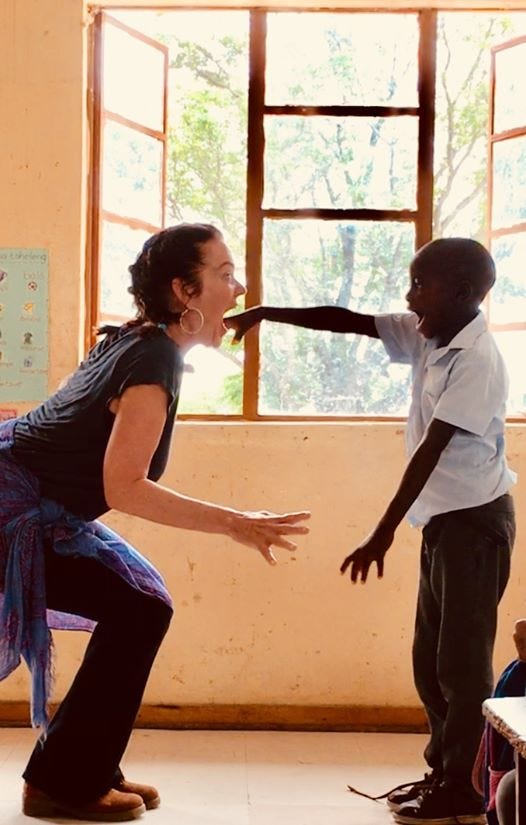
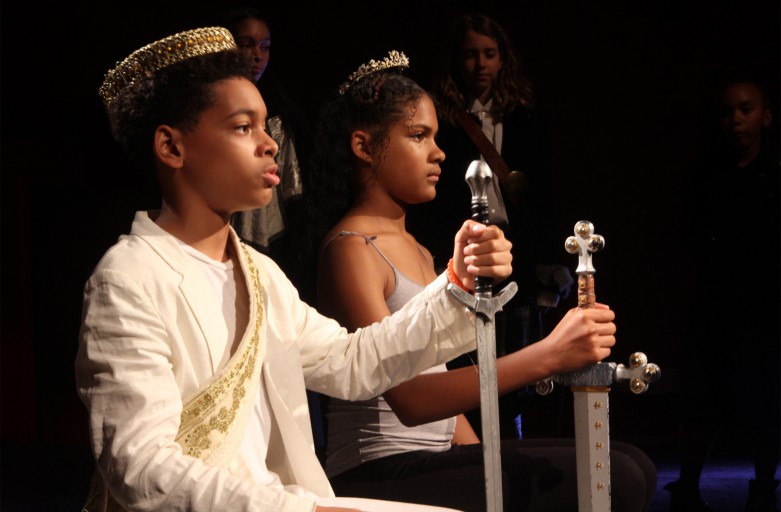
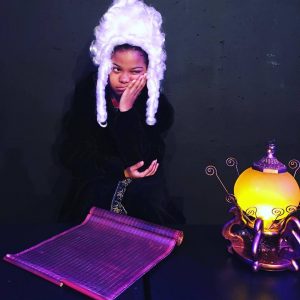 It’s weird not being backstage right now. Like I’ve lost a toddler that’s made a mad dash into the crowd. Aren’t I supposed to be shushing the players or teasing hair or getting Zane’s bloody eyepatch to look red not pink. Making sure Aaron doesn’t touch the set so it falls on ‘Mma again (pictured left). It’s closing night, why am I sitting here at Bradley Terminal waiting to board a three-pronged flight from L.A. to the bottom of Africa? By myself. Why am I crying? Why am I so sad? Am I scared? Why am I doing this? I’ve been sick for weeks and I can’t seem to recover. I cough and get weak and lose energy. I was told to cancel this trip (by people who cancel things). But I don’t. I’d sooner die than back down. I was supposed to go with two other women who have been here before. One is my oldest friend. But they had serious things happen and they couldn’t go. How much caffeine was I spinning on when I asked to go to Botswana by myself? And not on Safari, but to launch a performing arts program from scratch at a rural primary school? No Safari. The voice of multiple people are in my head, now. “Excuse me. Shakespeare in Africa? I mean culturally, that makes no sense. More Western thought? And who cares about Shakespeare when they have to deal with clean water and food scarcity? Plus…you’re not James Shapiro, you’re not the RSC or OSF or The Globe. What do you think you’re doing?”
It’s weird not being backstage right now. Like I’ve lost a toddler that’s made a mad dash into the crowd. Aren’t I supposed to be shushing the players or teasing hair or getting Zane’s bloody eyepatch to look red not pink. Making sure Aaron doesn’t touch the set so it falls on ‘Mma again (pictured left). It’s closing night, why am I sitting here at Bradley Terminal waiting to board a three-pronged flight from L.A. to the bottom of Africa? By myself. Why am I crying? Why am I so sad? Am I scared? Why am I doing this? I’ve been sick for weeks and I can’t seem to recover. I cough and get weak and lose energy. I was told to cancel this trip (by people who cancel things). But I don’t. I’d sooner die than back down. I was supposed to go with two other women who have been here before. One is my oldest friend. But they had serious things happen and they couldn’t go. How much caffeine was I spinning on when I asked to go to Botswana by myself? And not on Safari, but to launch a performing arts program from scratch at a rural primary school? No Safari. The voice of multiple people are in my head, now. “Excuse me. Shakespeare in Africa? I mean culturally, that makes no sense. More Western thought? And who cares about Shakespeare when they have to deal with clean water and food scarcity? Plus…you’re not James Shapiro, you’re not the RSC or OSF or The Globe. What do you think you’re doing?”